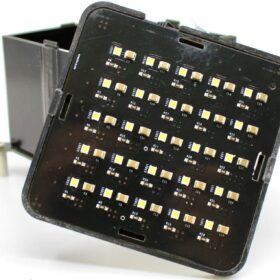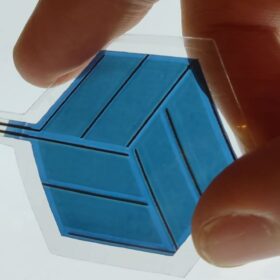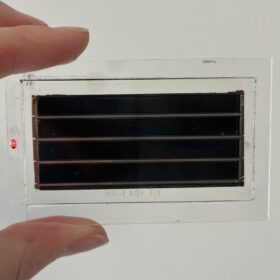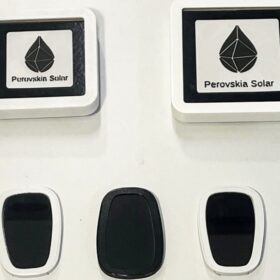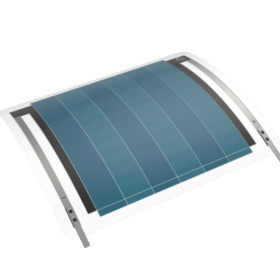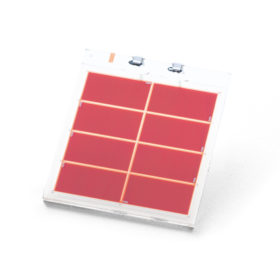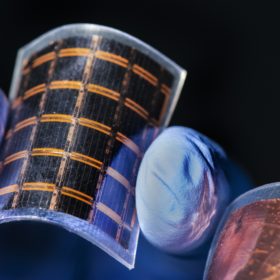Lightricity unveils indoor PV testing products
UK-based Lightricity, a spinoff of Oxford-based Sharp Laboratories of Europe, has launched testing equipment for indoor PV devices that are small enough to power wristwatches to larger ones meant for electronics devices and internet-of-things (IoT) sensors.
Italian startup offers roll-to-roll process for organic solar panels
Ribes Tech, a spinoff of the Italian Institute of Technology, has established a roll-to-roll process to produce organic photovoltaic modules that it says can be expanded to enable volume production of PV modules for indoor sensors, trackers, and electronic devices.
Canadian startup offers 35%-efficient indoor perovskite PV modules
Canada’s Solaires Entreprises says its indoor perovskite modules are suitable for powering a range of electronic devices, such as wireless keyboards, smart door locks, electronic shelf labels, and sensors.
Swiss perovskite startup sets up indoor solar cell manufacturing
Indoor solar cell developer, Perovskia Solar, is setting up a factory in Switzerland that may reportedly print 1 million of its custom-designed perovskite devices annually. It targets the market for self-powering consumer electronics and internet-of-things devices, such as fire-alarms, fitness trackers, and sensors.
Organic solar panels designed with coloured Moiré effect
French organic PV specialist Armor, and a Dutch designer specialized in integrating PV in furniture, windows and other objects, have provided the module technology for the Netherlands’ pavilion at Expo 2020 Dubai.
Mini organic solar module for indoor low-power applications
Under typical indoor illumination of around 500 lux, from light sources such as LED or fluorescent light, the device’s power conversion efficiency is just below 15%. The largest device has an open-circuit voltage of 3.8 V, a short-circuit current of 146 μA, and an output power of 418 μW. The product can also be used in conjunction with capacitors to replace batteries or to prolong their lifetime in low-power applications.
Ricoh launches solar cell for indoor applications
The Japanese electronics company has produced a solid-state, dye-sensitized solar cell for integration into sensors and consumer electronics. The company says the device can generate electricity from indoor light.
Sensing an opportunity for indoor PV
A new paper published by scientists from the Massachusetts Institute of Technology examines the potential for integrating small solar cells into the wireless sensors needed to power the fast-growing internet of things (IoT) ecosystem, many of which are located indoors. This market could represent a unique opportunity for thin film PV technologies, and perovskites in particular, to reduce the risk inherent to ramping up commercial scale production.
